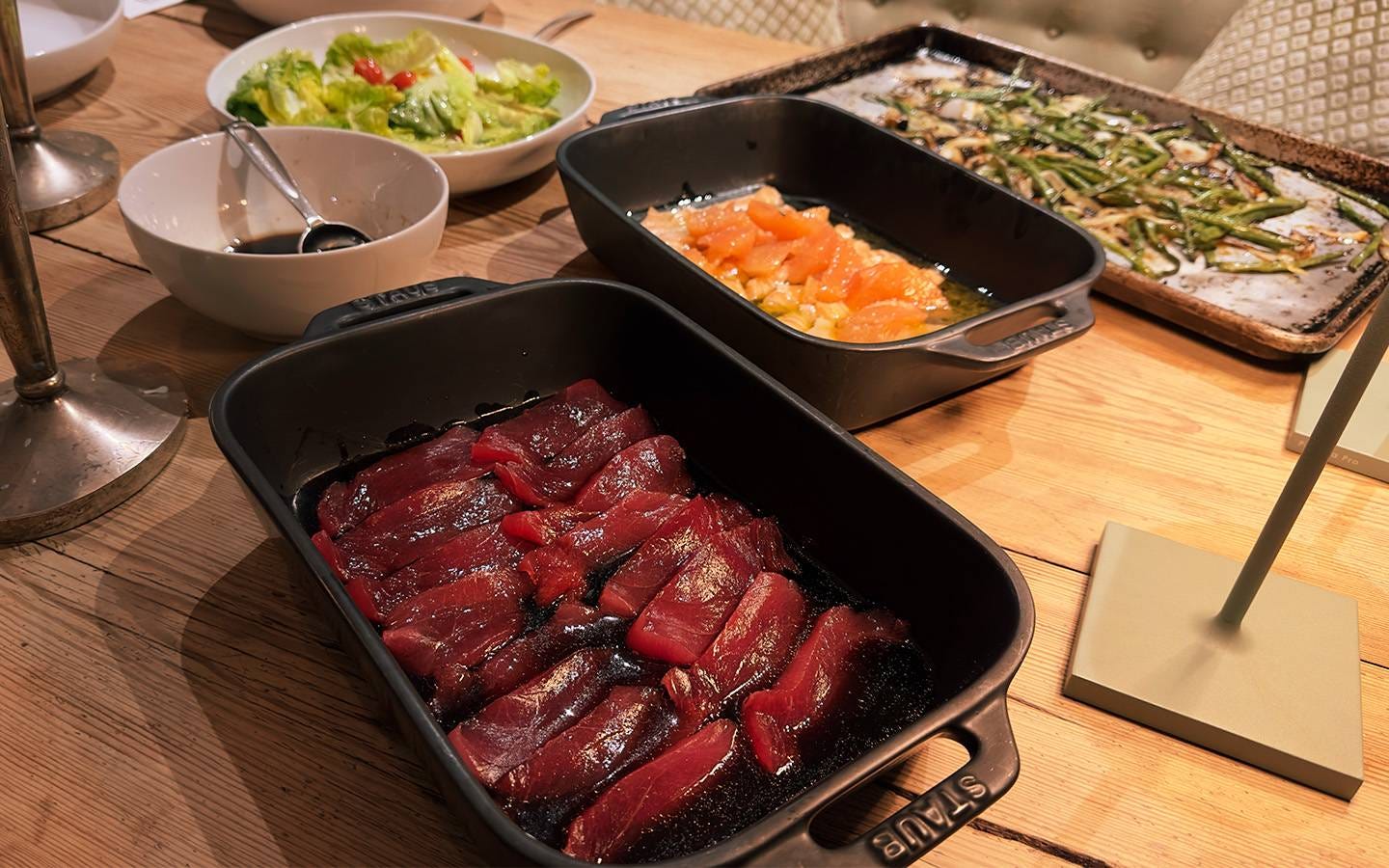The Power & Pain of Setting Boundries
Hello, my friend!
As I sit here in my kitchen watching the first signs of spring appear outside my window, I'm thinking about something I've been working on in my own life that might resonate with you too - boundaries.
Setting boundaries can feel both empowering and painful, can't it? It's like that delicate dance between caring for others and honoring ourselves. In my years of practice, I've noticed how many women struggle with this balance, especially as they navigate perimenopause and the shifting tides of midlife.
👇 In today’s email:
This week's inspiration: The Power and Pain of Setting Boundaries
Latest blog post: Mindful Eating: How Your Food Choices Affect Inflammation
What I'm reading: Why The News Feels Overwhelming—And How to Cope
The Power and Pain of Setting Boundaries
Setting boundaries isn’t just about saying “no” – it’s about creating sacred space for your own wellbeing. For many of us, especially women, this can feel incredibly uncomfortable. We’ve been conditioned to believe that our worth is tied to how much we give, how available we are, and how well we care for others. Sound familiar?
Why Boundaries Matter for Your Health
When we fail to set boundaries, our bodies often speak up for us. That constant fatigue? Those hormonal fluctuations? That disrupted sleep? These physical symptoms may be your body’s way of saying, “Please protect me!”
In Chinese medicine, we understand that emotional and physical health are deeply intertwined. When we consistently override our own needs, our qi (energy) becomes stagnant, potentially manifesting as:
Increased inflammatory responses
Hormonal imbalances
Disrupted sleep
Digestive issues
Accelerated aging
The Three Types of Boundaries We All Need
Over my years of practice, I’ve observed three essential types of boundaries that support women’s wellbeing:
Personal boundaries: Recognizing which relationships and interactions drain your energy versus which ones nourish you.
Time boundaries: Understanding that your time is precious and limited. Not every demand requires your immediate response.
Digital boundaries: Creating intentional spaces away from the constant barrage of information and connection.
Starting Small
If setting boundaries feels overwhelming, start with something small. Perhaps it’s silencing notifications during meals, or taking a full weekend off from family obligations to rest. The key is consistency, not perfection.
Remember, setting boundaries isn’t selfish – it’s an act of self-respect that allows you to show up more fully for the people and causes you truly care about. While not always easy, yes, you can create healthier boundaries while still being the caring, compassionate person you are!
Latest blog post
Mindful Eating: How Your Food Choices Affect Inflammation
Did you know that what you eat doesn't just affect your waistline – it fundamentally impacts your body's inflammatory response? In my latest blog post, I dive into the fascinating connection between our food choices and inflammation, particularly during perimenopause when our bodies become more sensitive to inflammatory triggers.
I explain how certain foods can either calm or ignite the inflammatory fire within us, and share practical strategies for making anti-inflammatory choices, even when dining out or attending social events. You'll also discover how Traditional Chinese Medicine views the energetic properties of foods and how they can either balance or disrupt our body's harmony.
Whether you're experiencing joint pain, skin issues, digestive troubles, or just want to feel more energetic, this guide offers simple, sustainable ways to use food as medicine.
What I'm Reading
Why the News Feels Overwhelming—And How to Cope
Have you been feeling overwhelmed by the news lately? You're not alone. This fascinating article from Scientific American explains the science behind news fatigue and how constant exposure to alarming headlines can hijack our nervous system.
What particularly resonated with me was the explanation of how fear affects our brain on both cognitive and emotional levels. When we're afraid, our ability to think clearly diminishes, making us more susceptible to cognitive distortions — those mental shortcuts where we jump to conclusions or engage in black-and-white thinking.
In my practice, I frequently see how this chronic state of alertness can disrupt our body's natural balance. The article offers several practical strategies to stay informed without becoming overwhelmed:
Taking intentional breaks from the news
Limiting consumption to specific times
Finding balance with positive stories
Connecting with others in meaningful ways
Taking action in areas where you can make a difference
This approach aligns beautifully with the TCM view that emotional well-being is inseparable from physical health. By mindfully managing our news consumption, we're not just protecting our mental health — we're supporting our entire system's ability to maintain harmony.
For those of us navigating the hormonal shifts of perimenopause and menopause, this becomes even more crucial, as stress can further amplify symptoms we may already be experiencing.
Remember, being informed doesn't mean being constantly connected to the news cycle. Yes, you can stay aware of important events while still protecting your peace!
Wishing you a week filled with healthy boundaries and inner calm!
Dr. Cat 🥰
Dr. Catherine Wellness
Looking to book a session in my Newport Studio? If you are new to my practice, book a Free Consult or if you know what you want, reserve your spot for a One-on-One experience.
The studio address: 10 Deblois Street, Newport, RI 02840
© 2024 Dr. Catherine On Wellness. This content may convey general information related to medical conditions, research, testing, treatment, and other healthcare topics. Any such information is provided for informational purposes only. You should always consult a doctor or other health care professional for medical advice or information about diagnosis and treatment.




